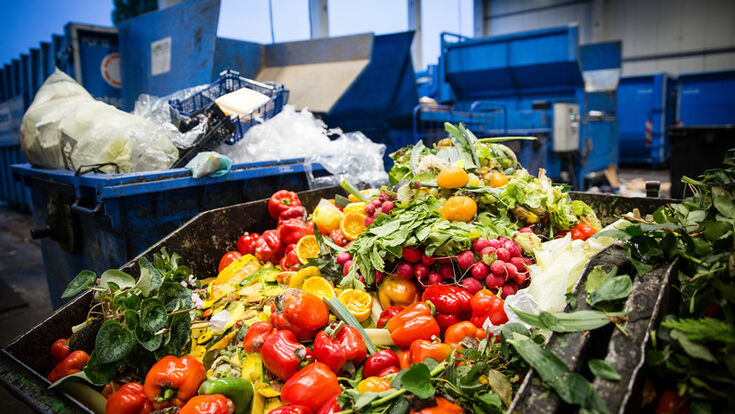Sustainability : Food waste: The underestimated factor in global warming

According to a draft of the IPCC special report, between 25 and 30 percent of all food produced is wasted or thrown away each year. Since 1970, this proportion is reported to have increased by about 40 per cent. According to the UN Food and Agriculture Organisation (FAO), this loss costs almost one trillion dollars (890 billion euros) every year.
And the climate suffers too: Waste contributes around eight percent to the already poor CO2 balance. This is also due to the increasing use of monocultures such as soy, which contribute significantly to the destruction of forests. Every year, tropical forests the size of Sri Lanka disappear - and with them the possibility to absorb large amounts of climate-damaging carbon dioxide.
Food waste does not take on the same proportions everywhere: The IPCC report on land use and climate change also looks at the differences between rich and developing countries. According to the report, people in rich countries throw a total of 222 million tonnes of food into the rubbish - per year. This is roughly equivalent to the amount produced annually in all sub-Saharan countries.
People in Europe and North America waste an average of 95 to 115 kilograms of food per capita per year. In sub-Saharan Africa and Asia, the average is only six to eleven kilograms per capita.
The type of waste also depends strongly on a country's level of development. In industrialised nations, 40 per cent of food is thrown away by retailers or consumers. In developing countries, 40 per cent of food ends up in the rubbish after harvest.
"In the South, this has a lot to do with the difficulties of transporting and preserving food, the food is produced in small villages and often doesn't make it to market in good condition," says Teresa Anderson of the non-governmental organisation ActionAid. "In the North, the waste happens much more often in supermarkets. The markets themselves throw away vegetables because of their shape or size, or because they don't look nice enough," Anderson criticises.
About two million adults worldwide are overweight or obese, while elsewhere 820 million people suffer from hunger. According to the IPCC report, "consumption beyond what is necessary to live" can also be considered waste. This form of waste is at least as great as throwing away food, the draft IPCC report says.
